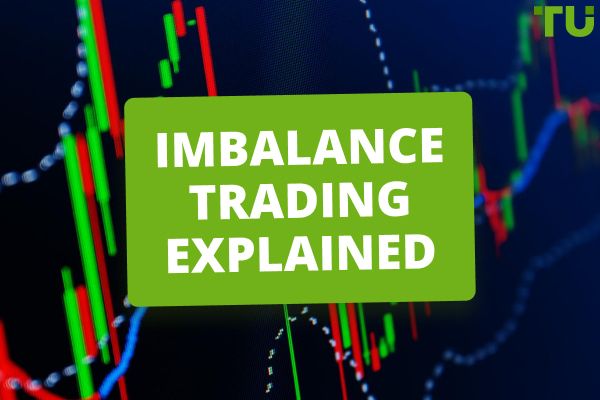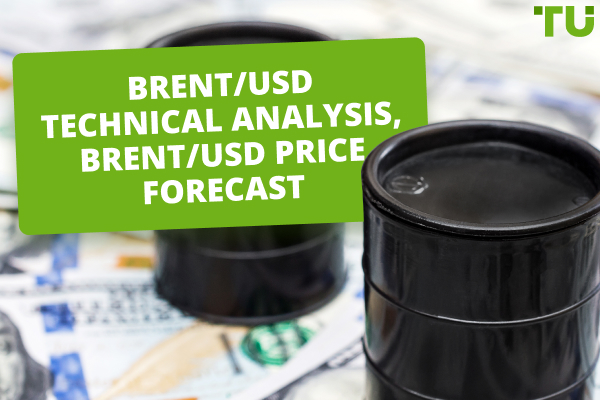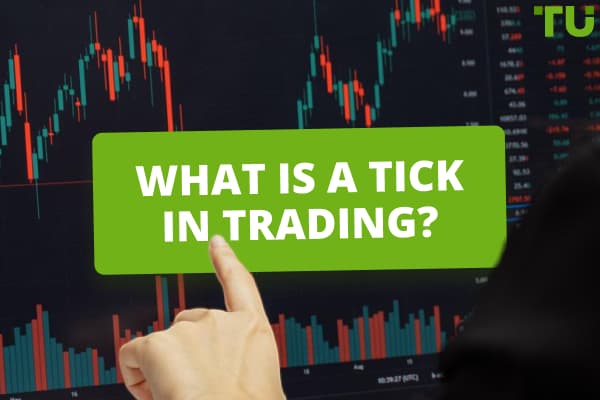What Is Overtrading And How To Avoid It
Overtrading is a situation in which a trader makes too many trades in a short period of time. To avoid overtrading, you need to develop a plan and strictly follow it, set stop losses, take breaks, set achievable goals, analyze the market and monitor your emotional state.
Overtrading is a phenomenon where a trader executes too many transactions in the market, surpassing their strategy and trading more frequently than planned. It's a common mistake that can lead to financial losses.
Some characteristic features of overtrading include:
-
Frequent Trades: The trader makes more trades than usual, even in the absence of clear signals.
-
Lack of Systematic Approach: There's no clear plan or strategy, leading to random decision-making.
-
Emotional Reactivity: Decisions are made based on emotions rather than a rigorous analysis.
-
Unjustified Risk: Too large trade volumes or high leverage can increase the risk.
Overtrading can result in excessive activity, deteriorating results, and increased commissions, ultimately affecting the trader's profitability. Effective risk management and adherence to a predetermined strategy are key factors in preventing overtrading.
Do you want to start trading Forex? Open an account on Roboforex!Reasons for overtrading
Overtrading can be caused by a variety of factors, such as:
-
Lack of experience. New traders often overtrade in an attempt to make money quickly. They don't understand that successful trading requires careful planning and analysis. They also don't understand that the market can be unpredictable, and even the most experienced traders sometimes make mistakes.
-
Adrenaline addiction. Some traders get a thrill from making trades, which can lead to overtrading. They experience the adrenaline rush of risk and emotion associated with trading. This can lead to them making impulsive trades that can lead to losses.
-
Fear of missing out. A trader may be afraid of missing out on a profitable trade, so they will overtrade in an attempt to catch every trend. This can lead to them making trades that are not profitable and to losses.
-
Lack of discipline. A lack of a clear plan and an inability to stick to a strategy can result in overtrading.
-
Uncertainty: Traders experiencing uncertainty may make trades to validate their decisions.
-
Lack of experience. Novices may be prone to overtrading due to inexperience and unawareness of the importance of a strategic approach.
-
The desire to make up for losses. A trader who has lost money on one trade may try to make up for it by making too many trades in an attempt to recoup their losses. However, this often leads to even more losses.
-
Lack of patience. A trader who wants to make quick money may make too many trades in an attempt to catch every profitable opportunity. However, this often leads to the trader making trades that are not profitable and to the loss of money.
Overtrading can lead to the following consequences:
-
Losses. A trader may make impulsive trades that are not profitable. This can lead to losses of money.
-
Stress and fatigue. A trader may feel stressed and fatigued from overtrading. This can lead to them making more mistakes and losing more money.
-
Loss of control over trading. A trader may lose control of their trading if they overtrade. They may make impulsive decisions that can lead to losses.
-
Overtrading can lead to trading addiction. A trader may begin to experience a feeling of excitement or thrill from making trades. This can lead to them making trades even if they are not profitable.
-
Increased spread costs.
How to avoid overtrading?
To avoid overtrading, it is important to follow the following rules:
-
Plan your trades ahead of time. Before making a trade, it is important to carefully analyze the market and determine if the trade is profitable.
-
Set stop-losses. A stop-loss is an order that automatically closes a trade if the price reaches a certain level. This will help you limit your losses.
-
Set reasonable goals. Don't try to make too much money in a short period of time.
-
Take breaks. If you are feeling stressed or fatigued, take a break from trading.
-
Set limits on the number of trades. Determine how many trades you will make in a day, week, or month. This will help you control your trading volume.
-
Review your trades. After each trade, analyze whether it was successful or not. This will help you identify your mistakes and improve your trading.
-
Focus on quality. Prioritize high-quality trades over quantity, emphasizing the best opportunities.
-
Monitor emotional state: Be aware of emotional triggers and take breaks if feeling stressed or impulsive.
-
Avoid FOMO: Understand that missing a trade doesn't equate to failure; stay disciplined.
If you are struggling with overtrading, you need to take steps to address it. You can seek help from an experienced trader or take a course on trading.
Conclusion
Overtrading is a situation in which a trader makes too many trades in a short period of time. This can lead to losses, stress, and trading addiction. To avoid overtrading, it is important to carefully analyze the market before making trades, set stop-losses and reasonable goals, and take breaks from trading.
Best Forex brokers


FAQ
What is overtrading and how do you avoid it?
Overtrading refers to excessive buying and selling of financial instruments beyond one's planned strategy. To avoid it, traders should stick to a well-defined plan, set realistic goals, use risk management tools like stop-loss orders, and prioritize quality over quantity in their trades.
How do I stop overtrading Forex?
Stopping overtrading in Forex involves creating a clear trading plan, setting specific goals, using risk management tools, focusing on high-quality trades, and being mindful of emotional triggers. Additionally, traders can diversify their portfolios, set time limits for trading activities, and continuously educate themselves.
What is the problem with overtrading?
The problem with overtrading lies in increased transaction costs, higher exposure to market risks, and potential emotional burnout. It can lead to losses due to impulsive decisions, lack of focus on quality trades, and neglect of risk management principles.
What is an example of overtrading?
An example of overtrading is a scenario where a trader, driven by the fear of missing out (FOMO), executes numerous trades within a short time frame without proper analysis or adherence to their strategy. This behavior often results in increased transaction fees and heightened risk without corresponding benefits.
Glossary for novice traders
-
1
Broker
A broker is a legal entity or individual that performs as an intermediary when making trades in the financial markets. Private investors cannot trade without a broker, since only brokers can execute trades on the exchanges.
-
2
Trading
Trading involves the act of buying and selling financial assets like stocks, currencies, or commodities with the intention of profiting from market price fluctuations. Traders employ various strategies, analysis techniques, and risk management practices to make informed decisions and optimize their chances of success in the financial markets.
-
3
Overtrading
Overtrading is a phenomenon where a trader executes too many transactions in the market, surpassing their strategy and trading more frequently than planned. It's a common mistake that can lead to financial losses.
-
4
Risk Management
Risk management is a risk management model that involves controlling potential losses while maximizing profits. The main risk management tools are stop loss, take profit, calculation of position volume taking into account leverage and pip value.
-
5
FOMO
FOMO in trading refers to the fear that traders or investors experience when they worry about missing out on a potentially profitable trading opportunity in the financial markets.
Team that worked on the article
Alex Smith is a professional day trader for a proprietary trading firm within the foreign exchange (forex) and crypto markets. His area of expertise is day trading and swing trading within the 15min-4hr time frames for both the London and NY open.
Dr. BJ Johnson is a PhD in English Language and an editor with over 15 years of experience. He earned his degree in English Language in the U.S and the UK. In 2020, Dr. Johnson joined the Traders Union team. Since then, he has created over 100 exclusive articles and edited over 300 articles of other authors.
Mirjan Hipolito is a journalist and news editor at Traders Union. She is an expert crypto writer with five years of experience in the financial markets. Her specialties are daily market news, price predictions, and Initial Coin Offerings (ICO).









